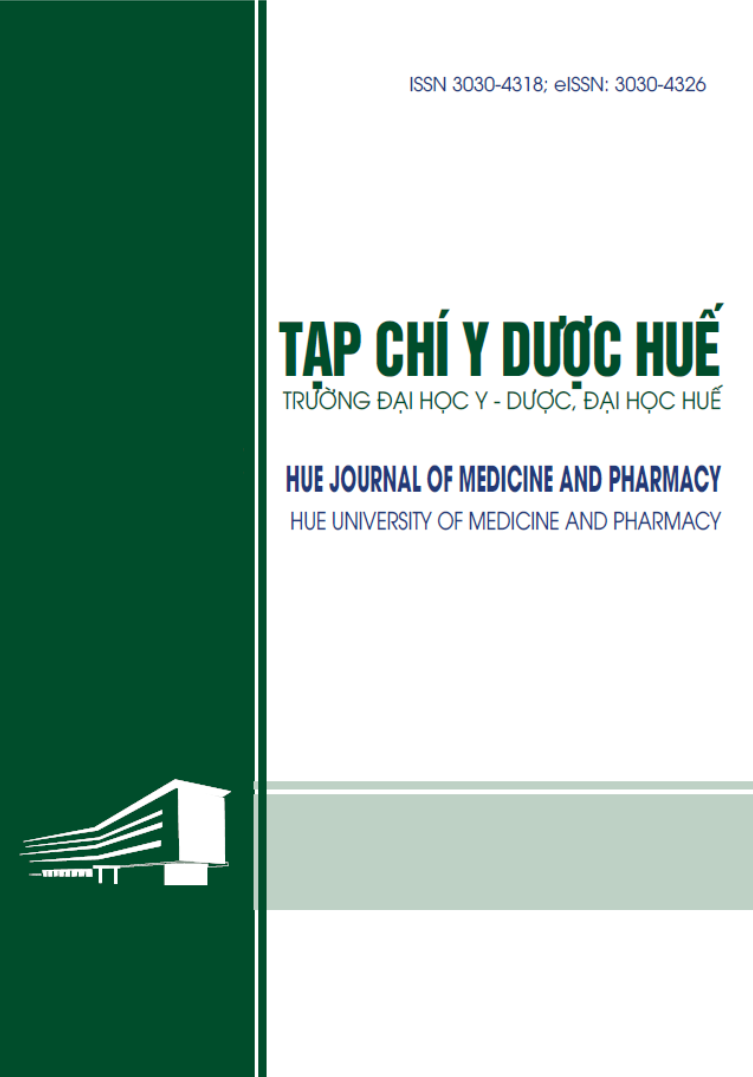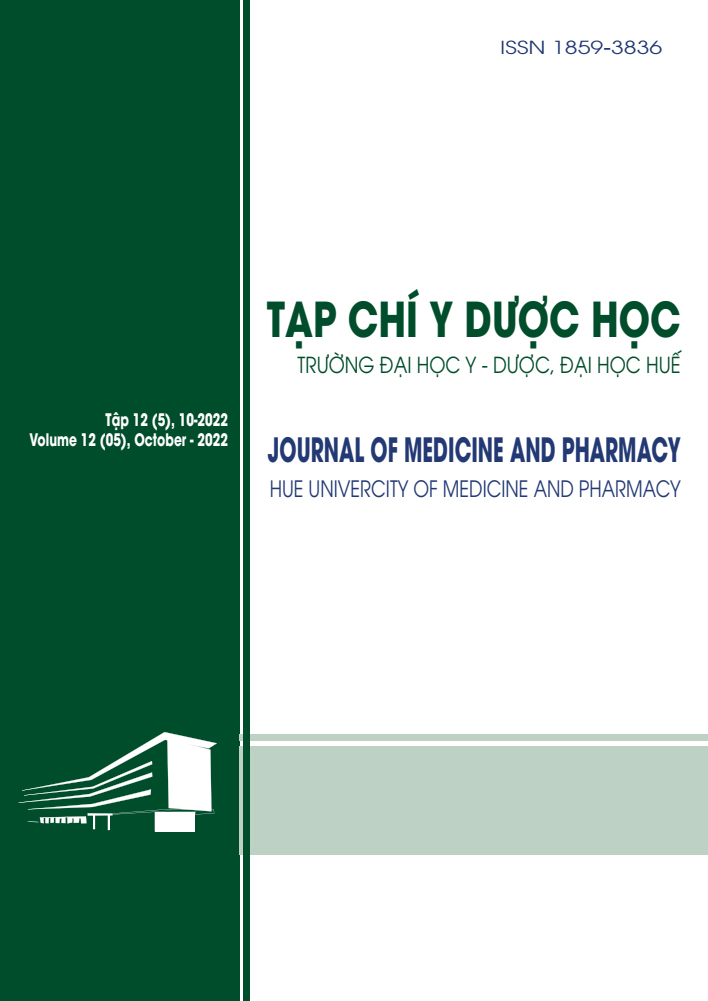Abstract
Background: Sleep is crucial during pregnancy. Sleep issues can harm both the mother and the developing fetus, affecting the overall pregnancy outcome. Objectives: To determine the prevalence of poor sleep quality and related factors in pregnant women. Methods: A cross-sectional descriptive study with analysis conducted on 173 pregnant women coming to the Obstetrics and Gynecology Clinic, Hue University of Medicine and Pharmacy Hospital from 03/2024 to 06/2024, based on the Pittsburgh Sleep Quality Index (PSQI). Results: 52% of pregnant women experience sleep disorders as per the PSQI scale. The study identified 11 factors affecting their sleep quality: gestational age OR = 3.253 (1.304 - 8.114); comorbidities OR = 6.231 (1.351 - 28.743); morning sickness OR =2.419 (1.287 - 4.546); dyspnea OR = 2.992 (1.463 - 6.119); back pain OR = 3.491 (1.637 - 7.441); nocturia OR = 3.285 (1.003 - 10.759); anxiety OR = 2.667 (1.440-4,940); lack of confidence in motherhood OR=6,21 (1,748-22,063); abnormal fetal screening OR=3,112 (1,436 - 6.743); appearance stress OR = 4.599 (1.479 - 14.305); and depression (PHQ-9) OR = 9.989 (4.569 - 21.838). In the multivariate regression model, only two factors were independently associated with sleep disorders: comorbidities aOR = 7.963; p = 0.013 and depression aOR = 8.197; p < 0.001. Conclusion: Pregnant women experience a significant prevalence of sleep disorders, so it is essential to enhance the factors associated with these issues to alleviate sleep disturbances during pregnancy.
| Published | 2025-06-25 | |
| Fulltext |
|
|
| Language |
|
|
| Issue | Vol. 15 No. 3 (2025) | |
| Section | Original Articles | |
| DOI | 10.34071/jmp.2025.3.23 | |
| Keywords | chất lượng giấc ngủ, PSQI, PHQ-9, phụ nữ mang thai sleep quality, PSQI, PHQ-9, pregnant women |

This work is licensed under a Creative Commons Attribution-NonCommercial-NoDerivatives 4.0 International License.
Copyright (c) 2025 Hue Journal of Medicine and Pharmacy
Natália Amorim Ramos Felix, Maria Filomena Ceolim, Sleep in pregnancy quarters: a longitudinal study, Revista Gaúcha de Enfermagem, 10.1590/1983- 1447.2023.20210278.en, 44, (2023).
National Sleep Foundation (2024). Pregnancy and Sleep.
Lu, Q, Zhang, X, Wang, Y, Li, J, Xu, Y, Song, X, et al. Sleep disturbances during pregnancy and adverse maternal and fetal outcomes: a systematic review and meta-analysis. Sleep Med Rev. (2021) 58:101436.
Gelaye B, Addae G, Neway B, Larrabure-Torrealva GT, Qiu C, Stoner L, Luque Fernandez MA, Sanchez SE, Williams MA. Poor sleep quality, antepartum depression and suicidal ideation among pregnant women. J Affect Disord. 2017 Feb;209:195-200.
Bahani, M., Zhang, Y., Guo, Y. et al., (2024), “Influencing factors of sleep quality in pregnant: a structural equation model approach”, BMC Psychol 12, 171.
Ölmez S, Keten HS, Kardaş S, Avcı F, Dalgacı AF, Serin S, Kardaş F. Factors affecting general sleep pattern and quality of sleep in pregnant women. Turk J Obstet Gynecol. 2015 Mar;12(1):1-5.
Qi W, Liu Y, Lv H, Ge J, Meng Y, Zhao N, Zhao F, Guo Q, Hu J. Effects of family relationship and social support on the mental health of Chinese postpartum women. BMC Pregnancy Childbirth. 2022 Jan 25;22(1):65.
Takelle GM, Muluneh NY, Biresaw MS. Sleep quality and associated factors among pregnant women attending antenatal care unit at Gondar, Ethiopia: a crosss ectional study. BMJ Open. 2022 Sep 5;12(9):e056564.
Tô Minh Ngọc, Nguyễn Đỗ Nguyên và cộng sự. Thang đo chất lượng giấc ngủ Pittsburgh phiên bản tiếng Việt. Tạp chí Y Học TP Hồ Chí Minh. 2014;6(S18):664-8.
Trần Khánh Nga, Nguyễn Minh Phương, Lê Thị Kim Định và cộng sự (2023), “Tình hình rối loạn giấc ngủ ở phụ nữ mang thai tại khoa khám bệnh, bệnh viện phụ sản thành phố Cần Thơ năm 2023”, Tạp chí y học Việt Nam, 535, (1B).
Quách Thị Minh Tâm, (2017), Tỷ lệ mất ngủ và các yếu tố liên quan trên phụ nữ mang thai ba tháng đầu tại Bệnh viện Từ Dũ, Luận văn thạc sỹ Y học trường Đại học Y dược thành phố Hồ Chí Minh.
Huỳnh Nguyễn Phương Thảo, Huỳnh Nguyễn Phương Quang, Nguyễn Xuân Thảo, Nguyễn Thị Hồng Nhung, Phan Thị Huyền Trân, (2022), “Rối loạn giấc ngủ và một số yếu tố liên quan ở thai phụ ba tháng cuối thai kỳ tại bệnh viện phụ sản thành phố Cần Thơ năm 2021”, Tạp chí Y Dược học Cần Thơ, (45), tr 70-76.
Phi HNY, Manh BX, Ngoc TA, Chau PTM, Tho TQ, Nghia NT, Nghia TT, Quynh HHN, Huy NT, Linh NT, An PL. Psychometric Properties of Vietnamese Versions of the Clinician-Rated and Self-Reported Quick Inventory of Depressive Symptomatology and the Patient Health Questionnaire. East Asian Arch Psychiatry. 2023 Jun;33(2):65-70.
Buysse DJ, Reynolds CF, Monk TH (1989), The Pittsburgh Sleep Quality Index (PSQI): A new instrument for psychiatric research and practice. Psychiatry Research, 28, 193-213.
Thái Quang Thanh Nhàn, Diệp Từ Mỹ, Trần Thị Tuyết Nga, (2022), “Chất lượng giấc ngủ kém và các yếu tố liên quan ở phụ nữ mang thai tại thành phố Buôn Ma Thuột, tỉnh Đắk Lắk, năm 2021’’, Tạp chí Y học TP. Hồ Chí Minh, (2), tr 263-269.
Huong, N.T.T., Thuy, N.T.H. and Yen, L.T.H. (2019), “Quality of Sleep among Pregnant Women”, International Journal of Clinical Medicine, 10, 16-25.
Mindell JA, Cook RA, Nikolovski J. Sleep patterns and sleep disturbances across pregnancy. Sleep Med. 2015 Apr;16(4):483-8.







